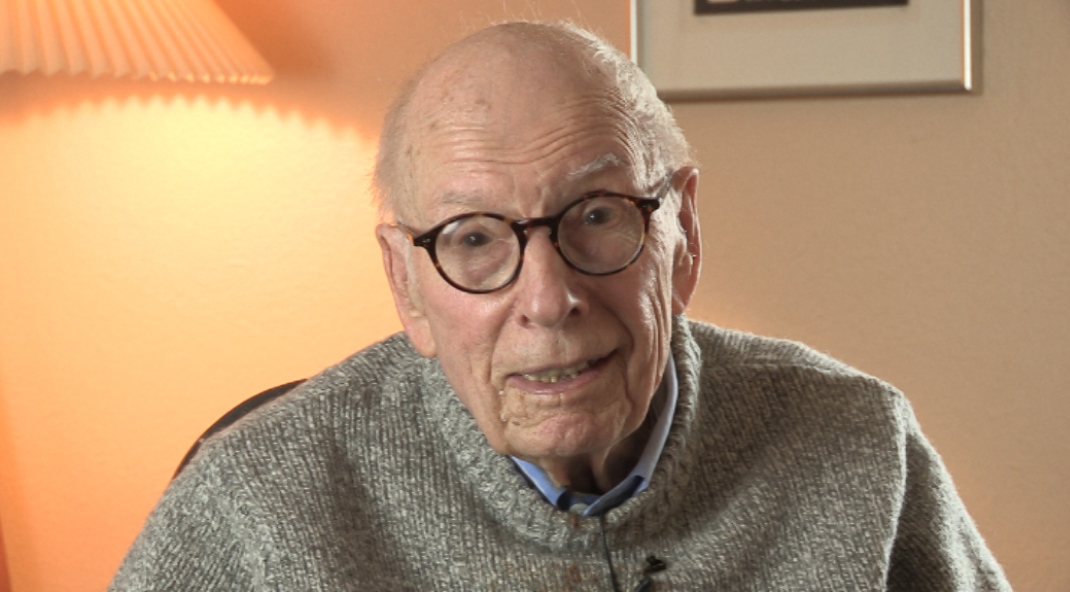NEXT STORY

My interests in evolutionary and developmental biology
RELATED STORIES

NEXT STORY

My interests in evolutionary and developmental biology
RELATED STORIES


|
Views | Duration | |
|---|---|---|---|
| 11. The charming Mr and Mrs Thomas H Morgan | 56 | 02:48 | |
| 12. Too generous to be my daddy! | 52 | 00:36 | |
| 13. Joining the inhabitants of ‘Mount Olympus’ | 53 | 02:33 | |
| 14. How far down does a blush go? | 60 | 01:57 | |
| 15. Meeting Father Time | 58 | 01:59 | |
| 16. My musical Swiss grandfather | 54 | 01:39 | |
| 17. Edwin Conklin versus Hans Driesch | 65 | 03:16 | |
| 18. My interests in evolutionary and developmental biology | 61 | 01:27 | |
| 19. The biddies of Harvard | 64 | 01:30 | |
| 20. Cracking calculus | 66 | 03:00 |


When I had my first job, I wanted to go to Woods Hole actually to work on my first book. And I was then an assistant professor at Princeton and the department was reluctant to pay for a table for me. But they said, we know what we'll do, we'll ask Dr Conklin if he will have you and he has a room, which was given to him in perpetuity because he was one of the founding fathers. And Conklin said he'd be delighted. So I spent the whole summer in Conklin's room, although I did most of the writing in the library because Conklin love to talk which was not very conducive to putting sentences together. So it was really very nice.
And Conklin was endlessly entertaining because he knew all these German embryologists that were so famous, and so much on my mind. And he had very strong opinions. So he liked… some of them were great and some of them were terrible. And my hero was Hans Driesch, who was the one who cut embryos in two a certain way, and you got two small embryos, which would reform and become perfect tadpoles, or whatever they were, but half the size. And the trouble with Driesch is, he got so impressed by this that he decided it had to be a vital force, an entelechy. And so he became a vitalist, and wrote vitalist literature. And Conklin, who is famous for finding the other kind of egg, or one of the two people that did, which was one in which if you cut in half an embryo, it stayed a half an embryo and it was not able to regulate. And so everybody agreed later that you'd have two kinds that develop, both regulative and mosaic.
And I never knew whether or not his animus against Driesch was because he was the other side of the embryological question, or whether he just didn't like him. And I rather suspect it was the second. I think that Driesch was too sort of oily and cosmopolitan.
John Tyler Bonner (born in 1920) is an emeritus professor in the Department of Ecology and Evolutionary Biology at Princeton University. He is a pioneer in the use of cellular slime molds to understand evolution and development and is one of the world's leading experts on cellular slime molds. He says that his prime interests are in evolution and development and that he uses the cellular slime molds as a tool to seek an understanding of those twin disciplines. He has written several books on developmental biology and evolution, many scientific papers, and has produced a number of works in biology. He has led the way in making Dictyostelium discoideum a model organism central to examining some of the major questions in experimental biology.
Title: Edwin Conklin versus Hans Driesch
Listeners: Christopher Sykes
Christopher Sykes is an independent documentary producer who has made a number of films about science and scientists for BBC TV, Channel Four, and PBS.
Tags: Edwin Conklin, Hans Driesch
Duration: 3 minutes, 16 seconds
Date story recorded: February 2016
Date story went live: 14 September 2016